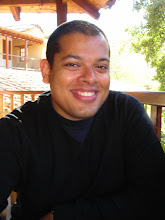Image via CrunchBase
@BinMugahid and @Esperanca, the two Tweeters I've known the longest since moving to Dubai, were both there. With his characteristic humour and honest takes on life, love and women @BinMugahid is probably one of Dubai's best known Tweeters and definitely its most original. @Esperanca, on the other hand, is a vault of information and does a great deal to steer people away from the oh-you're-on-Twitter-you-must-be-a-bespectacled-overweight-geek-with-no-friends-in-the-real-world image. It was also a real pleasure to meet @PKGulati who was responsible for bringing Twestival to Dubai. As he tell it, "It all started with a Tweet..."
Other people (Tweeple?) I bumped into were @CarringtonMalin, whose SpotOn PR did a brilliant job spreading the word about Twestival and @Abhamalpani, my counterpart from ASDA'A Burson Masteller. I'm really surprised that, besides ourselves (Weber Shandwick), SpotOn and ASDA'A, other PR agencies working in Dubai appear to have ignored Twestival, when they should have been all over it. I could be wrong about that (it was impossible to meet everyone at the event) but I'm sure that it was only these three agencies that devoted time and resources to pitching in to help for the event. If I am right, however, that doesn't say much about the region's PR industry.





